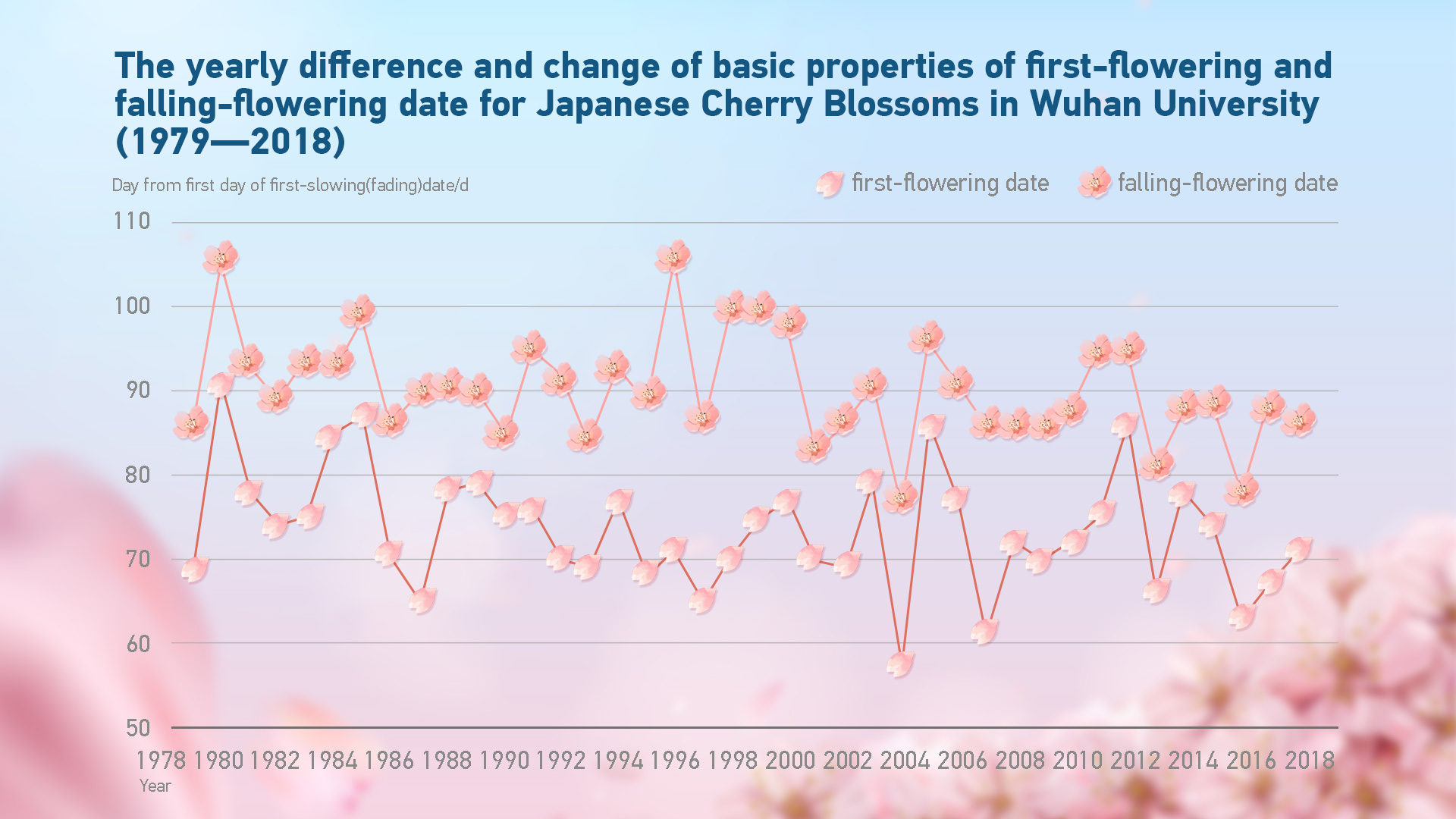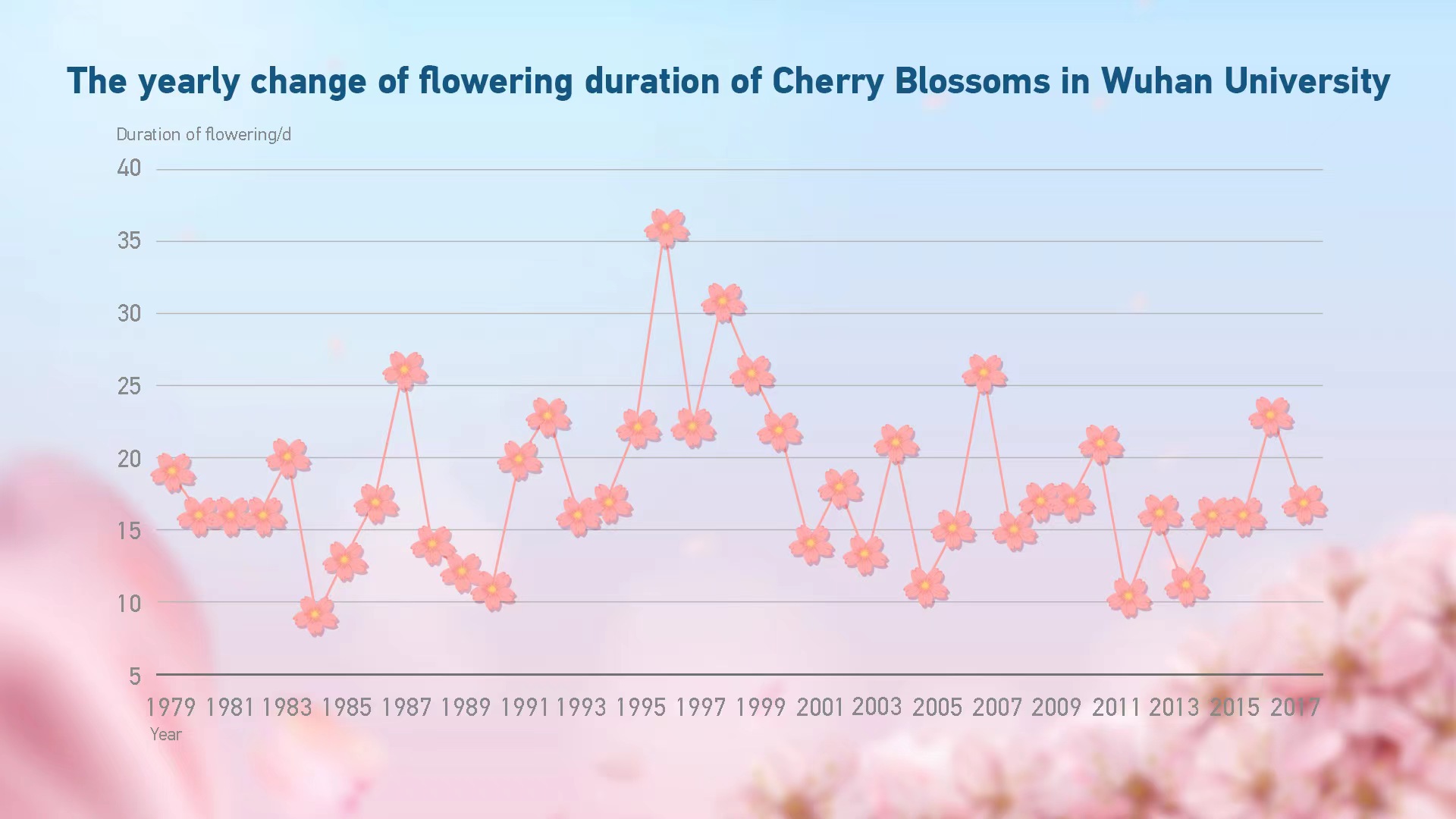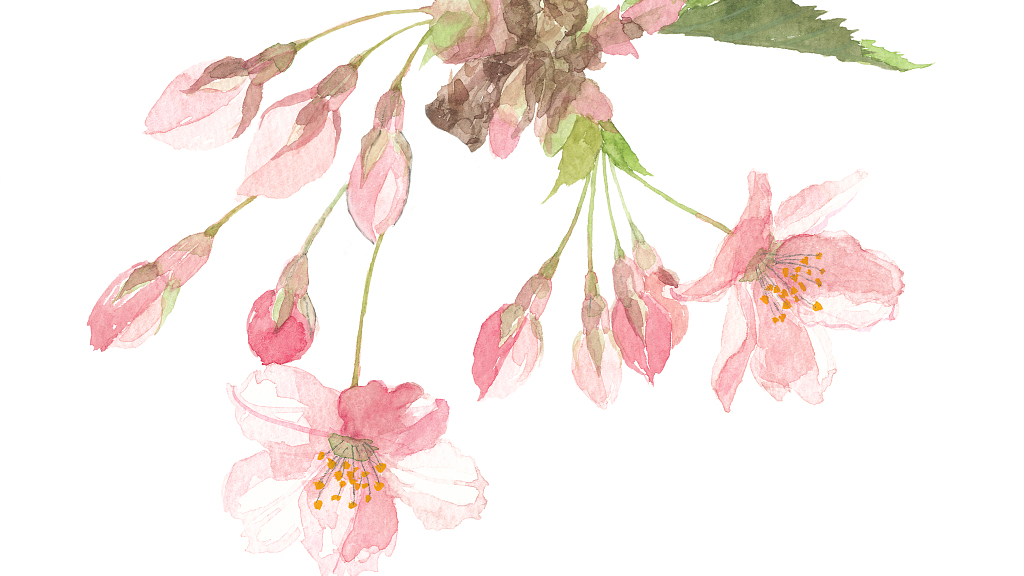The cherry blossoms of Wuhan University in China are a popular attraction and many visitors come every spring to enjoy the beautiful scenery. This year, the first flowering period on campus happened earlier than usual, according to the Hubei Meteorological Service Center.
Observation data for the blooming behavior of cherry blossoms goes back 40 years, with records between 1979 and 2018.

The yearly change of day of the year of the first-flowering and falling flowering date for cherry blossoms of Wuhan University (1979—2018). /Tan Jing
The yearly change of day of the year of the first-flowering and falling flowering date for cherry blossoms of Wuhan University (1979—2018). /Tan Jing
According to records, the first-flowering and falling flowering date of cherry blossoms at Wuhan University showed an early trend between 1979 and 2018, but the trend of change was less pronounced and more variable.

The yearly change of flowering duration of cherry blossoms in Wuhan University and its linear fitting (1979—2018). /Tan Jing
The yearly change of flowering duration of cherry blossoms in Wuhan University and its linear fitting (1979—2018). /Tan Jing
The second chart shows that there was a large variation in the number of flowering days over the 40-year period, but no significant overall trend of increase or decrease.
In a study by Tan Jing, an engineer at Hubei Meteorological Service Center, and her colleagues, the researchers concluded that the first-flowering and falling flowering dates of cherry blossoms moved forward in the 1980s and 1990s. The results showed that the stagnation periods of cherry blossom initiation and deciduous periods were highly coincidental with the stagnation periods of global warming, indicating that global warming has a clear effect on the flowering period of cherry blossoms.
According to the theory of phenology, climatic conditions have an important influence on the flowering time of plants. Light, temperature and moisture affect the length of flowering. Many studies have found that in temperate regions of the Northern Hemisphere, plants have generally flowered earlier in recent decades due to the effects of climate change.

Hand-painted illustrations of cherry blossoms. /VCG
Hand-painted illustrations of cherry blossoms. /VCG
In addition to China, Japan is also facing the same situation. The Japan Meteorological Agency reported that the average flowering day of cherry blossoms in major cities has advanced by five or six days in the 30-year interval from 1960 to 1990 and 1970 to 2020, such as in Sendai, Nagoya and Osaka. According to Jiji Press, the Someiyoshino cherry blossoms are dormant during the cold winter period and bloom every spring when the temperature rises, and as the global climate warms, the flowering period also advances. If global warming increases further and the cold weather required for cherry blossoms to go dormant disappears, cherry blossoms are likely to stop blooming.
According to research by James R. Kellner, a professor at Brown University, in the highest elevations of western North America and throughout the mountains, vegetation has shifted upward in elevation over the past few decades. These shifts have been driven primarily by the warming that began to occur in western North America in the 1980s. Nevertheless, in cases where vegetation changes have not kept pace with climate change, the total area of suitable habitat for some species is likely to decline, putting them at greater risk of extinction.
About Climate Archive
Welcome to CGTN Nature's Climate Archive series, the ultimate source for climate science, expert forums, and the latest climate-related info. Together we delve into this handy climate encyclopedia!
(If you want to contribute and have specific expertise, please contact us at nature@cgtn.com.)